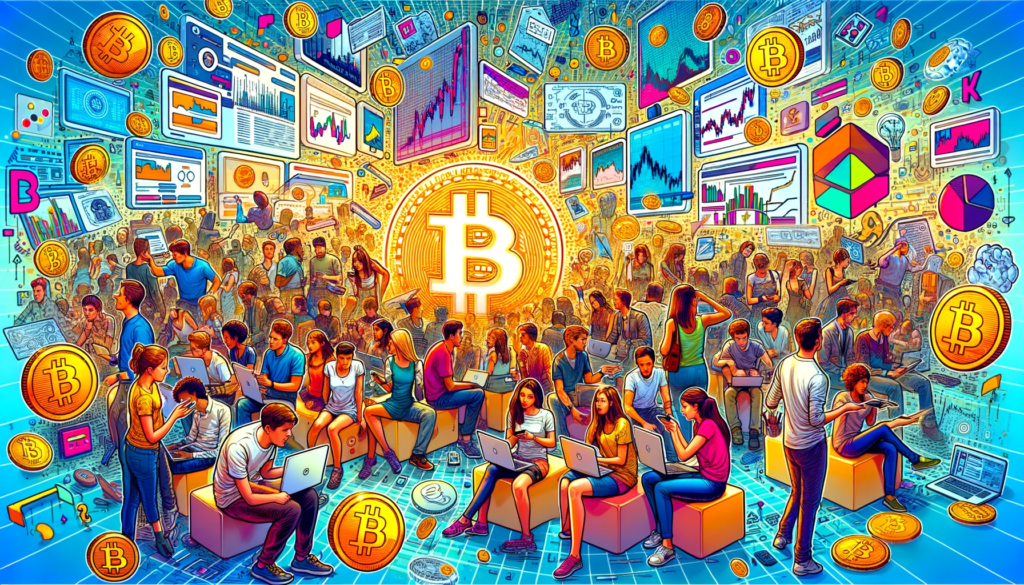- Gen Z perceives Bitcoin more as an investment than a currency or technology.
- Geographic differences significantly impact these perceptions, influenced by national policies.
- Education and exposure are crucial in changing the prevailing view of Bitcoin among younger generations.
Exploring Bitcoin’s Perception Among Gen Z
Bitcoin, a prominent topic in financial circles, often centers on the presumption of its natural adoption by younger generations. But what does Gen Z, the group born between the mid-1990s and early 2010s, really think about Bitcoin?
As students at Washington and Lee University, we undertook research on Bitcoin and Tether’s roles in Lebanon. This exploration led us to ponder Gen Z’s perspective on Bitcoin. Being digital natives in our teens and twenties, our cohort’s engagement with Bitcoin could significantly influence its future.
A Comparative Survey: US vs. China Perspectives
We conducted a non-scientific survey among our peers in the United States and China, focusing on two questions: their understanding of Bitcoin and its prevalence in their lives. This approach helped us gauge whether geographical differences influenced their perceptions, especially given the divergent policies of the US and China regarding Bitcoin.
In both countries, Gen Z views Bitcoin primarily as an investment vehicle. However, nuances exist: American peers perceive it as a speculative yet increasingly accepted investment option, advising cautious portfolio allocation due to its high-risk nature. On the other hand, Chinese peers associate Bitcoin with gambling and illegal activities, reflecting government warnings and fostering a sense of caution and skepticism.
Daily Encounters with Bitcoin
American Gen Zers describe encountering Bitcoin in everyday scenarios like ATMs at gas stations, online payment options, and QR codes at restaurants. For them, Bitcoin exists but remains a novelty. Conversely, in China, the visibility of Bitcoin is minimal, largely due to the government’s mining ban in 2021 and the illegal status of trading, making it a distant concept for most.
Shifting Perspectives and Global Applications
Our initial views of Bitcoin as merely an investment option evolved after months of study. We discovered Bitcoin’s multifaceted roles in countries like Lebanon, Russia, Nigeria, Ukraine, and El Salvador. It serves as a savings tool, a remittance vehicle, a lifeline for dissidents, and a means for refugees to transport wealth. El Salvador’s adoption of Bitcoin as legal tender highlights its potential to attract high-tech innovation and tourism.
We recognize Bitcoin’s potential to balance the international currency playing field. While it may not completely replace fiat currencies, it could act as a check against rampant inflation. Its broader contributions to global finance are becoming increasingly evident.
Gen Z’s Gradual Bitcoin Enlightenment
Our survey revealed a generational gap in understanding Bitcoin, not limited to older generations. Gen Z, despite being digital natives, still predominantly views Bitcoin as a speculative asset. However, we believe this perception will shift as Bitcoin education becomes more prevalent, and as more people explore the “Bitcoin rabbit hole,” appreciation for its broader applications is likely to grow.












